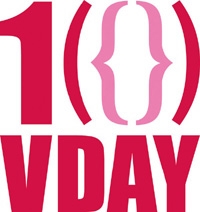Last night, I turned off NPR in a state of complete disgust. It wasn’t just the ongoing hellish pledge drive that drives me away from NPR for months at a time. (I _want_ to give to NPR, but the pledge drives tend to make me turn my back on NPR instead.) No, it was the framing of the election results. It was the way the story has been and continues to be framed. And it wasn’t just NPR, but Fox News, CNN, and NYTimes have all made me blazingly angry this week. And it wasn’t just about winners or losers, but about how the story is framed dramatically to get people to tune in.
I was really excited about this election. A variety of factors in my life motivated me to get really engaged, to research candidates, to persuade other people into engaging. I started reading and watching MSM again rather than waiting for it to be filtered through Stewart/Colbert or the blogosphere. But in doing so, I watched an ugly pattern emerge. The moment that one candidate was seen as pulling ahead, MSM started dredging up crap on them… or creating stories from nothing. My favorite story was the one the NYTimes wrote on how they couldn’t find anyone to prove for certain that Obama did drugs. They published this the night before Virginia/Maryland/DC. The last two weeks, the NYTimes has done some of the worst reporting possible. The whole McCain story made me really sympathize with him personally (even though, politically, he scares the shit out of me). And then this week, they started reporting on how people are saying Clinton should step down if Obama wins in Texas and Ohio. Both of these articles seemed set up to do one thing: keep the election cycle going by amplifying the competition by any means necessary, but primarily by making the front-runner look dreadful.
I’m disgusted. In the back of my mind, I’ve always known that MSM is all about creating drama to sell more papers. As an infrastructure, MSM are not really partisan (although individuals are)… it’s that the infrastructure of MSM feeds off of people being engaged. And there’s nothing more emotionally engaging (and exhausting) than conflict and fear mongering. The MSM doesn’t create an accurate picture of what’s going on because the Corporation behind the MSM doesn’t feel a responsibility to, even if individual reporters are well-intentioned. Journalists, by and large, are extremely well-intentioned but they’re caught up in a system. They are pressured to write stories that create conflict and while senior folks can step back and take a higher stance, they can’t become senior if they don’t meet the needs of the Corporation for a while. Uphold hegemony and then maybe you get some wiggle room… but by then, you are the institution. Besides, even if you want to speak truth to power, good luck – your article is not likely to sell well or be widely read.
Many journalists are idealists. But they aren’t independent and what’s “newsworthy” is inevitably what’s dramatic. Whatever stance they take on those dramatic incidents, their small part of the pie feeds into a much larger structure whose incentives are to keep the wheels turning.
I’ve been avoiding reporters a lot lately. They always tell me that I should talk to them “to tell the other side.” But we both know that’s not what really happens. They use me to tell the story that they need to tell but they have to at least give nods to “the other side” for appearances. There’s no story in reality. Reality is boring. It’s not made for 24/7 news. Fear sells. Conflict sells. Making someone else’s life miserable sells. Reality doesn’t. The incentives are all screwed up and it’s just downright disgusting.
People always ask me what it will take to get teens to listen to news. Why should they? What do they gain by being sent on an information roller-coaster for the news industry to turn a buck? Does consuming news really make you more informed or ready to engage? Have you watched MSM on TV lately?
The more I try to engage, the more my passion and desire to make change is destroyed. Years ago, after a different egregious move by the NYTimes, I cancelled my subscription. I can’t cancel it again, but I would if I could. More than anything, what I’m realizing is that I need to check out of the news again. It doesn’t make me more well-informed; it simply makes me more angry and depressed. It’s good timing… one less thing I can do while procrastinating writing.
As for the election, I’ve become pretty apathetic once again. At this point, I don’t care. No matter what, I don’t think that it will be fair or representative or in the best interests of the people. Everyone likes to complain about how the candidates don’t give real opinions, but we all know the reason why they don’t: the media would destroy them. Paying attention to their efforts to dance cautiously with the media gets me nowhere. There’s no way to know the candidates, no way to actually get a sense of how they will navigate the nasty waters of the media, industry lobbyists, political pressures, and really complicated decisions. It’s all guess work so all we do is vote on charisma and guesswork about who will handle which parts of the puzzle best. I still believe in Obama, but I’ve lost faith in the system. All I know is that come November, I will vote against the Republican party. McCain is only one small fraction of that party and actually the least of my concerns. I want that whole corrupting, demeaning, destructive party out of control now. I wish I could say that I would be voting for the Democrats, but I’m not sure that’s true. I just don’t think that they’ll screw it up as badly. And the fact that at the end of the day I resort to that logic is depressing.
I wish I could find the energy to care, but I’ve completely lost it once again. I really had hope. I was so excited to see so many people energized and believing that they could make change by engaging. I was really excited to see conversations occur that were not previously occurring. But things have gone stale and at the end of the day, I realize that the media and other powerful people are once again controlling the election. And it’s hard to sustain hope when that’s what plays out.
In the meantime, I wonder if it’s possible to change the incentive structure around MSM? (And no, I don’t think that bloggers are the answer.)





 I’m baaaaack. OMG, it was sooo lovely to relax on the beach with friends. Fiction was read (i *really* loved
I’m baaaaack. OMG, it was sooo lovely to relax on the beach with friends. Fiction was read (i *really* loved 
